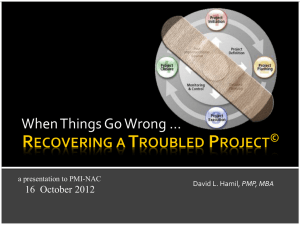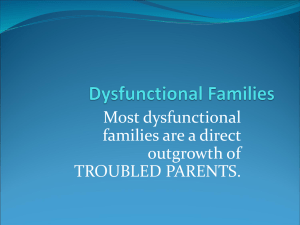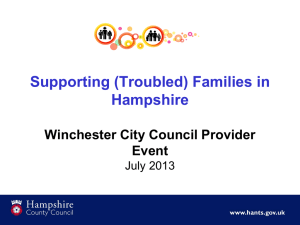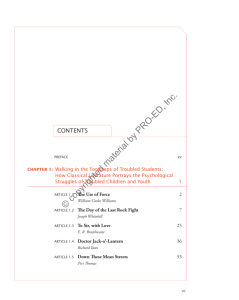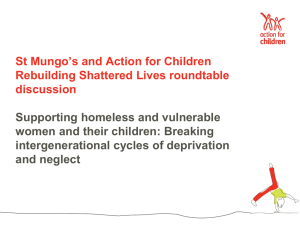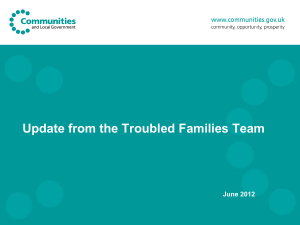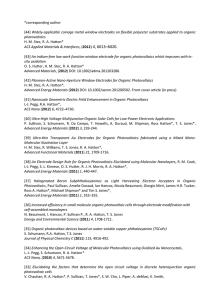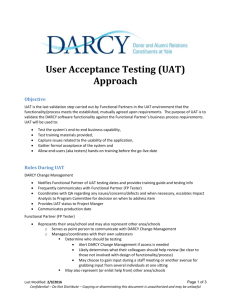Abstract - University of Southampton
advertisement
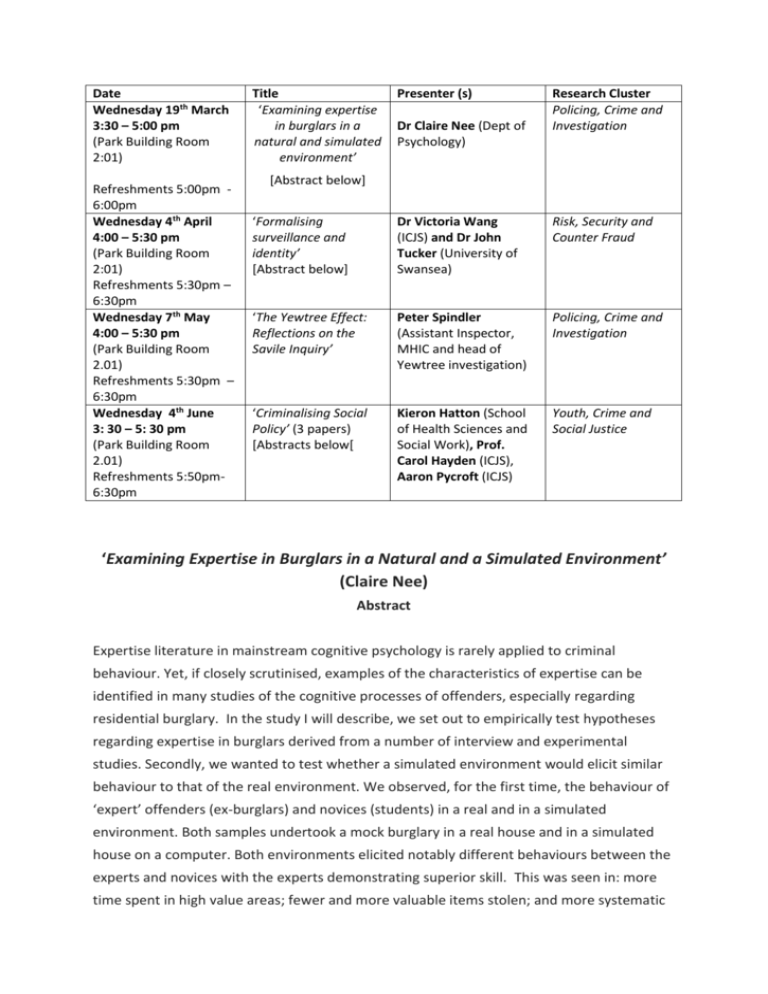
Date Wednesday 19th March 3:30 – 5:00 pm (Park Building Room 2:01) Refreshments 5:00pm 6:00pm Wednesday 4th April 4:00 – 5:30 pm (Park Building Room 2:01) Refreshments 5:30pm – 6:30pm Wednesday 7th May 4:00 – 5:30 pm (Park Building Room 2.01) Refreshments 5:30pm – 6:30pm Wednesday 4th June 3: 30 – 5: 30 pm (Park Building Room 2.01) Refreshments 5:50pm6:30pm Title ‘Examining expertise in burglars in a natural and simulated environment’ Presenter (s) Dr Claire Nee (Dept of Psychology) Research Cluster Policing, Crime and Investigation [Abstract below] ‘Formalising surveillance and identity’ [Abstract below] Dr Victoria Wang (ICJS) and Dr John Tucker (University of Swansea) Risk, Security and Counter Fraud ‘The Yewtree Effect: Reflections on the Savile Inquiry’ Peter Spindler (Assistant Inspector, MHIC and head of Yewtree investigation) Policing, Crime and Investigation ‘Criminalising Social Policy’ (3 papers) [Abstracts below[ Kieron Hatton (School of Health Sciences and Social Work), Prof. Carol Hayden (ICJS), Aaron Pycroft (ICJS) Youth, Crime and Social Justice ‘Examining Expertise in Burglars in a Natural and a Simulated Environment’ (Claire Nee) Abstract Expertise literature in mainstream cognitive psychology is rarely applied to criminal behaviour. Yet, if closely scrutinised, examples of the characteristics of expertise can be identified in many studies of the cognitive processes of offenders, especially regarding residential burglary. In the study I will describe, we set out to empirically test hypotheses regarding expertise in burglars derived from a number of interview and experimental studies. Secondly, we wanted to test whether a simulated environment would elicit similar behaviour to that of the real environment. We observed, for the first time, the behaviour of ‘expert’ offenders (ex-burglars) and novices (students) in a real and in a simulated environment. Both samples undertook a mock burglary in a real house and in a simulated house on a computer. Both environments elicited notably different behaviours between the experts and novices with the experts demonstrating superior skill. This was seen in: more time spent in high value areas; fewer and more valuable items stolen; and more systematic routes taken around the environments. I will discuss the value of the expertise paradigm for improving our understanding of offending behaviour and the implications of utilising these new observational methodologies for reducing crime. ‘Formalising Surveillance and Identity’ (Victoria Wang and John Tucker) Abstract Surveillance is a social phenomenon that is general and commonplace, employed by governments, companies and communities. Its ubiquity is due to technologies for gathering and processing data; its strong and obvious effects raise difficult social questions. We give a general definition of surveillance that captures the notion in diverse situations and we illustrate it with some disparate examples. A most important, if neglected, component idea is that of the identity of the people or objects observed. We propose a general definition of identifiers as data designed to specify the identity of an entity in some context or for some purpose. We examine the ways identifiers depend upon other identifiers and show the provenance of identifiers requires reductions between identifiers and a special idea of personal identifier. The theory is formalised mathematically. Finally, we reflect on the role of formal methods to give insights in sociological contexts. Criminalising Social Policy (Kieron Hatton, Carol Hayden and Aaron Pycroft) Abstracts It is well documented how in recent decades social policy and crime have become inextricably linked. So, welfare and social justice based issues have often been recast in relation to anti-social (and criminal) behaviour. The papers in this session are connected by this theme. Young people and families in receipt of primarily welfare based support are variously conceptualised as ‘at risk’, ‘troubled’ in need of ‘social inclusion’ and ‘diversion’ from the criminal justice system. Abstracts for each paper are as follows: Paper 1: Aaron Pycroft – The Need for Creativity in Working with ‘at risk’ Adolescents This paper outlines the findings from an English research study using an Interpretive Phenomenological Analysis methodology, with service users of the Unified adolescent Team (UAT) that was carried out in 2009. The UAT worked with adolescents between the ages of twelve and twenty and who had complex needs which led them to be identified as a ‘hard to reach group’. The research identifies three super-ordinate themes that reflect their experiences of receiving services from the UAT that were freed from the restraints of national standards and performance indicators: in crisis and out of control, new helping relationships and building new lives. This paper discusses these findings and contextualises the work of the UAT within the existing literature on positive engagement with this client group and the challenges that these findings pose to a dominant, reductionist paradigm of risk and punishment in addressing complex needs. SEE: Pycroft, A., Wallis, A., Bigg, J, and Webster, G (2013) ‘Participation, Engagement and Change: A Study of Service Users of the Unified Adolescent Team’ in British Journal of Social Work, 1-18, doi:10.1093/bjsw/bct089 Paper 2: Carol Hayden and Craig Jenkins – The ‘Troubled Families’ Agenda ‘Troubled families’ are currently a key social policy focus of the Coalition government in the UK. In common with New Labour, the Coalition views these families as having a ‘responsibility deficit’ in relation to taking up paid work, causing a disproportionate amount of anti-social behaviour and failing their children in myriad costly ways. Links between the current agenda and a response to the August 2011 riots in England are explicit. The Department for Communities and Local Government, DCLG (2013, para 1) provides the following definition of a troubled family: Troubled families are those that have problems and cause problems to the community around them, putting high costs to the public sector [our emphasis]. The paper takes a critical look at the ‘Troubled Families’ Agenda drawing on ongoing empirical research on two local programmes. DCLG (2013) Helping troubled families turn their lives around, 12 February https://www.gov.uk/government/policies/helping-troubled-families-turn-their-livesaround#background [downloaded 30.5.2013] SEE: Hayden, C. & Jenkins, C. (forthcoming) Children taken into Care and Custody and the ‘troubled families’ agenda in England, Child and Family Social Work. Paper 3: Kieron Hatton – Creativity, Youth inclusion and social pedagogy There has been considerable interest in the UK about the potential usefulness of social pedagogy (a European method of social intervention) in improving services for children and young people in the UK. This interest has focused primarily on children’s residential services. This paper looks at the way in which social pedagogy can contribute to improving services for young people accessing youth services. It draws on examples from across Europe to indicate why a social pedagogic approach predicated on creativity and social inclusion can potentially significantly improve outcomes for young people accessing youth services and divert them away from the criminal justice system. SEE: Hatton, K (2013) Social Pedagogy in the UK: Theory and Practice. Lyme Regis: Russell House. ISBN 9781905541898. Hatton, K (2012) Youth Inclusion and Social Pedagogy: a UK perspective published in 'Biennale internationale l'education, de la formation et des pratiques professionnelles'. Paris: France.
